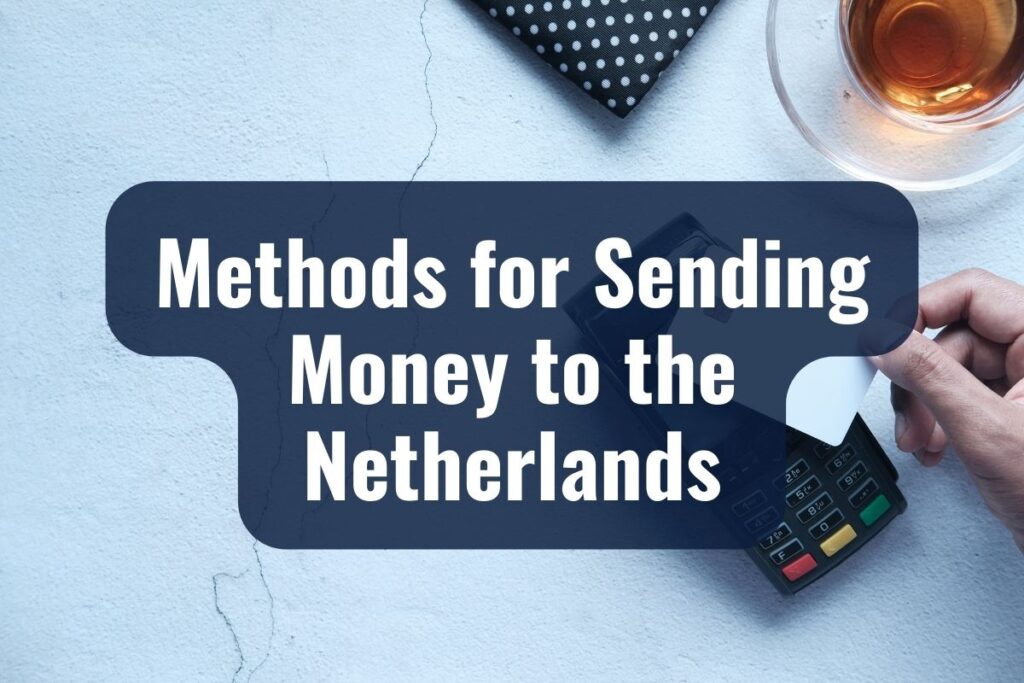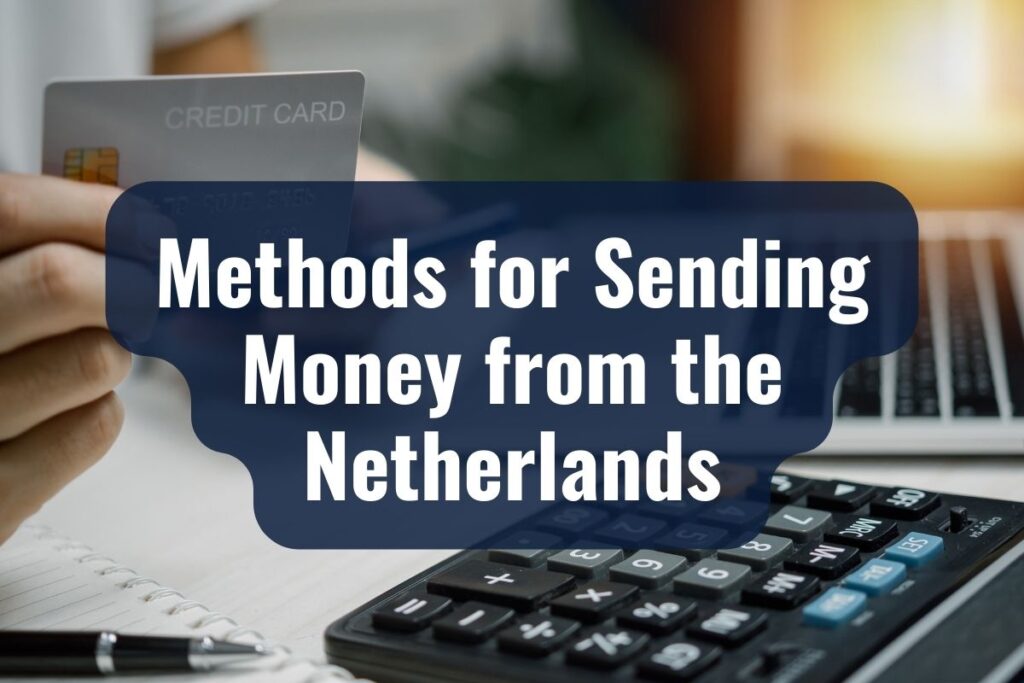As a foreigner, it’s crucial to understand how to manage your monetary transactions efficiently without getting lost in translations or tangled up in unnecessary fees. Whether you’re sending money back home, receiving funds from abroad, or merely aiming to grasp the financial intricacies, this article is tailored for you.
Today, we’ll demystify the process of international money transfers to and from the Netherlands, offering you a clear roadmap in plain English. Let’s dive in and ensure that your financial journey in the Netherlands is as smooth as the country’s scenic canal rides.
Key Takeaways
- Understanding the Dutch financial system can ease the process of international transfers for foreigners.
- Numerous methods, both traditional and online, exist for sending money to and from the Netherlands.
- Always consider exchange rates, transaction fees, and transfer times when remitting funds.
- Foreigners may face challenges like language barriers, unfamiliar fee structures, and cultural differences in the Dutch financial landscape.
- Multiple resources are available for foreigners seeking deeper insights into the Dutch financial system.
Understanding the Dutch Financial System
The Dutch financial system is renowned for its efficiency, security, and adaptability, making it particularly appealing for foreigners to engage with. However, before diving into the mechanics of transferring money internationally, it’s beneficial to have a foundational understanding of the system you’re interacting with.
Basics About the Dutch Banking System and Its Reliability
At its core, the Dutch banking system is characterized by a combination of commercial banks, cooperative banks, and international banks. The Netherlands boasts a high banking density, meaning there are numerous bank branches dotted across the country, making it convenient for residents and foreigners alike.
The Dutch Central Bank (De Nederlandsche Bank, DNB) supervises the banking sector, ensuring its stability and reliability. Its rigorous oversight means that banks in the Netherlands adhere to international banking standards and practices, ensuring the safety of the depositor’s money.
Common Banks Used by Foreigners and Locals Alike
ING Bank
Often recognized for its user-friendly online platform and mobile app, ING offers a range of services catering to both individual and business needs. They provide English versions of their online tools, making it a popular choice among foreigners.
ABN AMRO
Another stalwart in the Dutch banking scene, ABN AMRO is known for its comprehensive services and expat-friendly approach, including English-speaking staff and online services in English.
Rabobank
A cooperative bank with a strong local presence, Rabobank offers diverse banking solutions and often collaborates with local communities for financial projects.
SNS Bank
Valued for its straightforward banking solutions, SNS Bank offers competitive rates, especially for savings accounts.
Bunq
A newer entrant in the Dutch banking scene, Bunq is a digital bank that appeals to tech-savvy users. Their app-centric approach and international focus make it a growing favorite among the younger and expatriate crowd.
In addition to these, several international banks are operating in the Netherlands, ensuring that foreigners from various parts of the world can find a banking partner they’re familiar with.
Methods for Sending Money to the Netherlands

The Netherlands, with its strong global connections and open economy, offers multiple avenues for receiving international funds. As a foreigner, understanding these methods can save you time, money, and potential frustration. Here’s a breakdown of the most common methods to send money to the Netherlands:
International Bank Transfers: Procedure and Expected Fees
International bank transfers are initiated by providing the receiving Dutch bank’s IBAN (International Bank Account Number) and BIC/SWIFT code. These codes are vital for ensuring the money reaches the right bank and account in the Netherlands.
An international bank transfer cost can vary based on the sending, receiving, and intermediary banks involved. Generally, you can expect a transfer fee ranging from €5 to €50, but it’s crucial to check with your bank for precise figures. Some banks also offer fee discounts for online transfers.
Online Money Transfer Platforms: How They Work and Popular Choices
Online platforms allow for easy money transfers by creating an account, linking it to a bank or card, and then initiating the transfer. These platforms often boast quick transfer times and competitive exchange rates.
Popular Choices
TransferWise (now Wise): Known for real exchange rates (the mid-market rate) and transparent fees.
PayPal: Widely recognized and used for both personal and business transactions. Be aware of the conversion fees.
Revolut: A financial technology company that provides international money transfers with no hidden fees.
Skrill: Offers international transfers to many countries with competitive fees.
Remittance Services: Traditional Options and Their Presence in the Netherlands
Traditional remittance services like Western Union and MoneyGram allow you to send money to the Netherlands, which can then be picked up in cash or deposited into a bank account. To send money, you’d typically visit a branch, provide the recipient’s details, and pay in cash or via a card.
These services generally have higher fees compared to online platforms but can be useful when the recipient needs cash or doesn’t have a bank account. Always inquire about the total cost, including any hidden fees or charges.
Methods for Sending Money from the Netherlands

Whether you’re remitting funds to your family, paying for services overseas, or handling international business transactions, it’s essential to understand the available options for sending money from the Netherlands. Here’s a guide to some of the most widely used methods:
| Method | Procedure | Popular Choices/Notes |
| Dutch Bank Services | 1. Identify recipient details 2. Visit bank’s portal/app 3. Enter transaction details 4. Review & authorize | Fees vary; SEPA transfers are typically cheaper |
| Online Platforms | 1. Create/log into account 2. Link bank account/card 3. Enter recipient details & amount 4. Authorize transfer | Wise, PayPal, Revolut, and Skrill; Often offer competitive rates & lower fees |
| Potential Taxes & Fees Awareness | Consult a financial advisor or tax expert | Beware of hidden charges or fees embedded in exchange rates |
Using Dutch Bank Services for International Transfers: Step-by-step
Procedure
Identify the recipient’s details: Make sure you have the recipient’s full name, address, and bank’s IBAN and BIC/SWIFT code.
Visit your bank’s online portal or mobile app: Most Dutch banks provide an online banking system in English, facilitating easy international transactions.
Enter the transaction details: This includes the amount, the recipient’s bank details, and sometimes, the purpose of the transfer.
Review and authorize the transfer: Before finalizing, ensure all details are correct and take note of the exchange rate offered and any associated fees.
Fees
Each bank has its fee structure for international transfers. Typically, transferring funds within the SEPA (Single Euro Payments Area) is cheaper than to non-SEPA countries. Always check the fee details before proceeding.
Online Platforms and Their Advantages
Procedure: Using online platforms is often a straightforward process:
- Create or log into your account: Platforms usually require verification for security purposes.
- Link your Dutch bank account or debit/credit card.
- Enter the recipient’s details and the amount.
- Authorize the transfer.
Popular Choices
Wise (formerly TransferWise): Offers transparent fee structures and real-time exchange rates.
PayPal: Convenient for both personal and business transfers. Ensure you’re aware of the conversion and transaction fees.
Revolut: Known for its competitive rates and ease of use, especially for frequent travelers or those with multi-currency needs.
Skrill: Useful for both personal and business transfers, with a clear fee structure.
Advantages
Online platforms often provide better exchange rates, quicker transfer times, and lower fees than traditional bank transfers, especially for significant amounts.
Potential Taxes and Fees to be Aware of
When sending large sums internationally from the Netherlands, be aware of potential tax implications. It’s always a good idea to consult with a financial advisor or tax expert if you’re unsure. Additionally, always read the fine print regarding fees, as hidden charges can sometimes be embedded in the exchange rate or as service charges.
Things to Consider When Sending Money

While the act of transferring money might seem straightforward, several nuances can influence the efficiency, cost, and overall experience of the process. Being proactive about understanding these factors can be both time-saving and financially rewarding. Here are key things to consider when sending money internationally from or to the Netherlands:
Exchange Rates: How They Can Affect Your Transfer
Understanding the Basics: The exchange rate is the value at which one currency can be exchanged for another. It’s crucial to recognize that this rate fluctuates continuously due to various economic factors.
Impact on Your Transfer: A favorable exchange rate can mean more money for the recipient, while an unfavorable one can erode the value of the funds being transferred. Even a slight variation in the rate can lead to a significant difference in large sums.
Where to Check: Regularly monitoring financial news websites, bank portals, or specialized currency converter tools can give you insights into prevailing rates.
Transaction Fees: Hidden Costs to Watch Out For
Bank Fees: Traditional banks might charge a flat fee for international transfers, or it could be a percentage of the amount being sent. Always ask for a breakdown to avoid surprises.
Online Platforms: While online money transfer platforms often advertise low fees, it’s essential to be aware of any hidden charges. Some might embed their costs in the exchange rate they offer.
Recipient Fees: In some cases, the recipient’s bank might charge a fee for receiving international transfers. It’s worth checking in advance to ensure clarity.
Transfer Time: How Long It Usually Takes for the Recipient to Receive the Funds
Factors Affecting Transfer Time: The speed of an international money transfer can be influenced by the method chosen, the countries involved, and the respective banks’ operational hours.
Typical Durations
- Bank transfers: Can take anywhere from 1 to 5 business days.
- Online platforms: Often faster, with some offering instant transfers or within a day.
- Remittance services: Typically quick, with some providing instant cash pickups.
Challenges Foreigners Might Face

Relocating to a new country like the Netherlands brings a host of exciting opportunities, but it can also present certain challenges, especially when navigating financial transactions.
Understanding these challenges can prepare you for a smoother experience. Here are some potential hurdles foreigners might encounter when dealing with international money transfers:
Language Barrier
While many Dutch banking professionals speak English, official documentation or online platforms may predominantly be in Dutch. This can make understanding nuances or terms and conditions tricky.
Opt for banks or services that provide comprehensive English-language support. Moreover, familiarizing oneself with basic Dutch financial terms can be beneficial.
Differing Banking Practices
Operating Hours: The banking hours and operational days in the Netherlands might differ from what foreigners are accustomed to. This can affect the timing of transfers.
Account Verification: The Netherlands has stringent banking regulations. As a result, foreigners may find the account verification process rigorous or different from their home country.
Fees and Exchange Rate Inconsistencies
Unfamiliar Fee Structures: The breakdown of transaction fees might differ from what foreigners are used to, leading to unexpected costs.
Fluctuating Exchange Rates: Without prior experience, understanding and predicting currency fluctuations can be challenging.
Limited Access to Some International Platforms
Regional Restrictions: Some online transfer platforms or financial services might not operate in the Netherlands due to licensing issues or other constraints.
Solution: Research in advance to determine which platforms are accessible and reputable within the Netherlands.
Potential Misunderstandings Due to Cultural Differences
Communication Styles: The Dutch are known for their direct communication style. While efficient, it might come off as brusque to those from cultures with a more indirect approach.
Approach to Privacy: The Netherlands values privacy, especially in financial matters. Foreigners should be prepared for less overt sharing of financial details or processes.
Resources for Further Reading
De Nederlandsche Bank (DNB): The Dutch Central Bank’s official website offers a plethora of information on regulations, financial stability, and other pertinent banking topics. Available in Dutch and English.
Dutch Banking Association (NVB): This association represents the interests of the banking sector in the Netherlands. Their site offers publications, news, and insights into Dutch banking trends and policies.
Financieele Dagblad (FD): A leading Dutch financial newspaper that provides daily news, analysis, and insights into the financial world. Although predominantly in Dutch, some articles are available in English.
Wise Blog: Previously known as TransferWise, the Wise blog offers insights into currency trends, international banking practices, and tips on getting the best out of their service.
Revolut Blog: A resourceful platform for understanding the fintech landscape, including articles on international money transfers, currency exchange, and more.